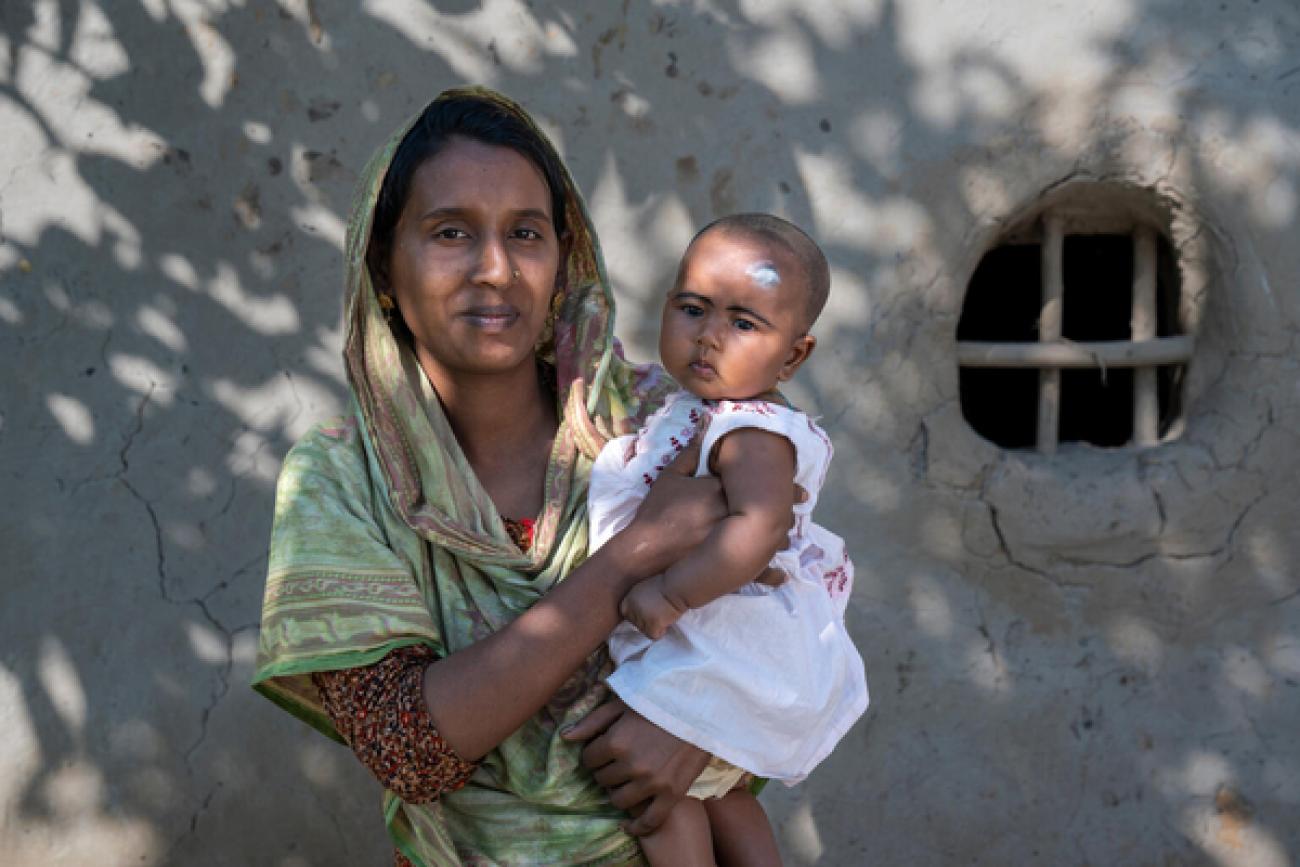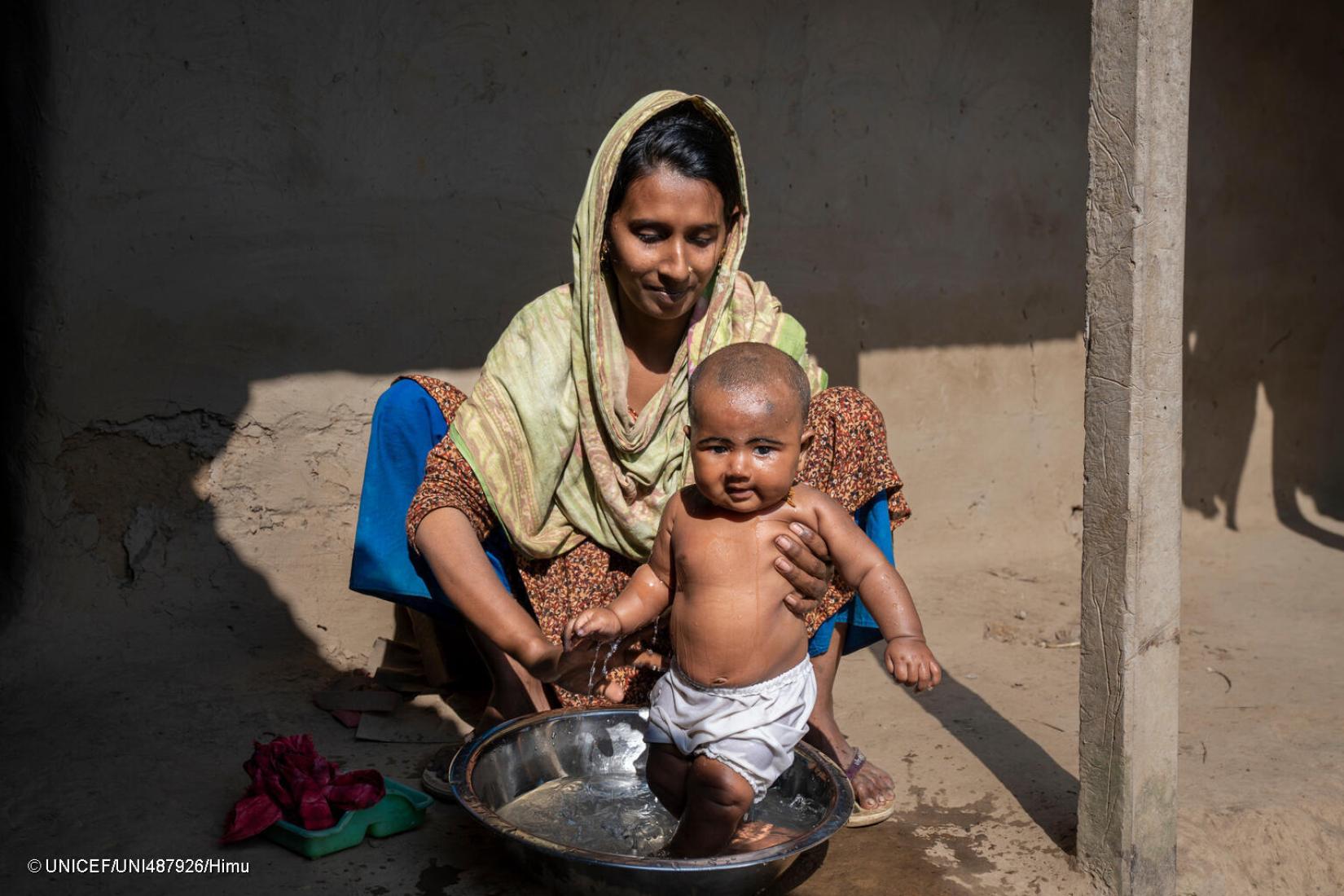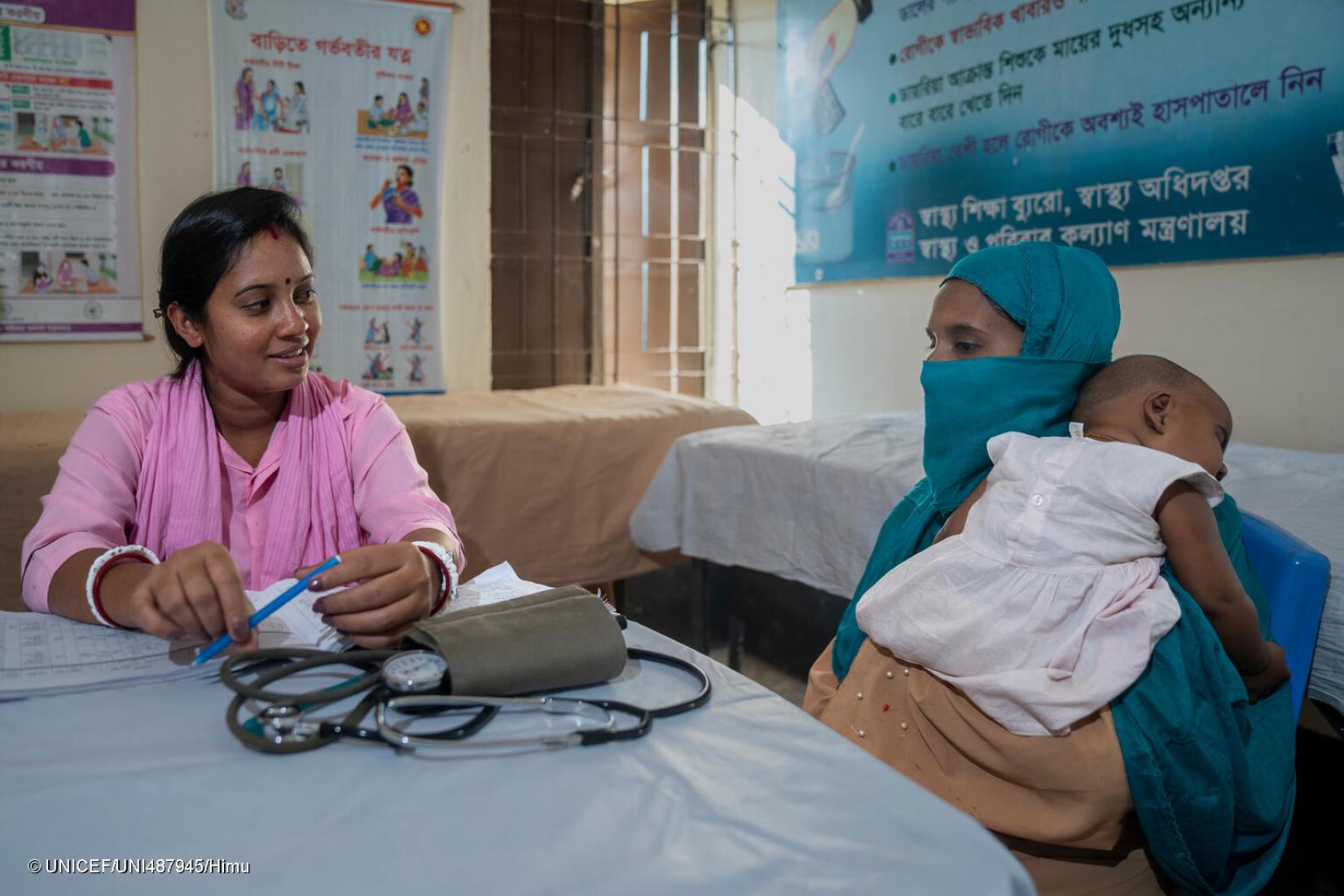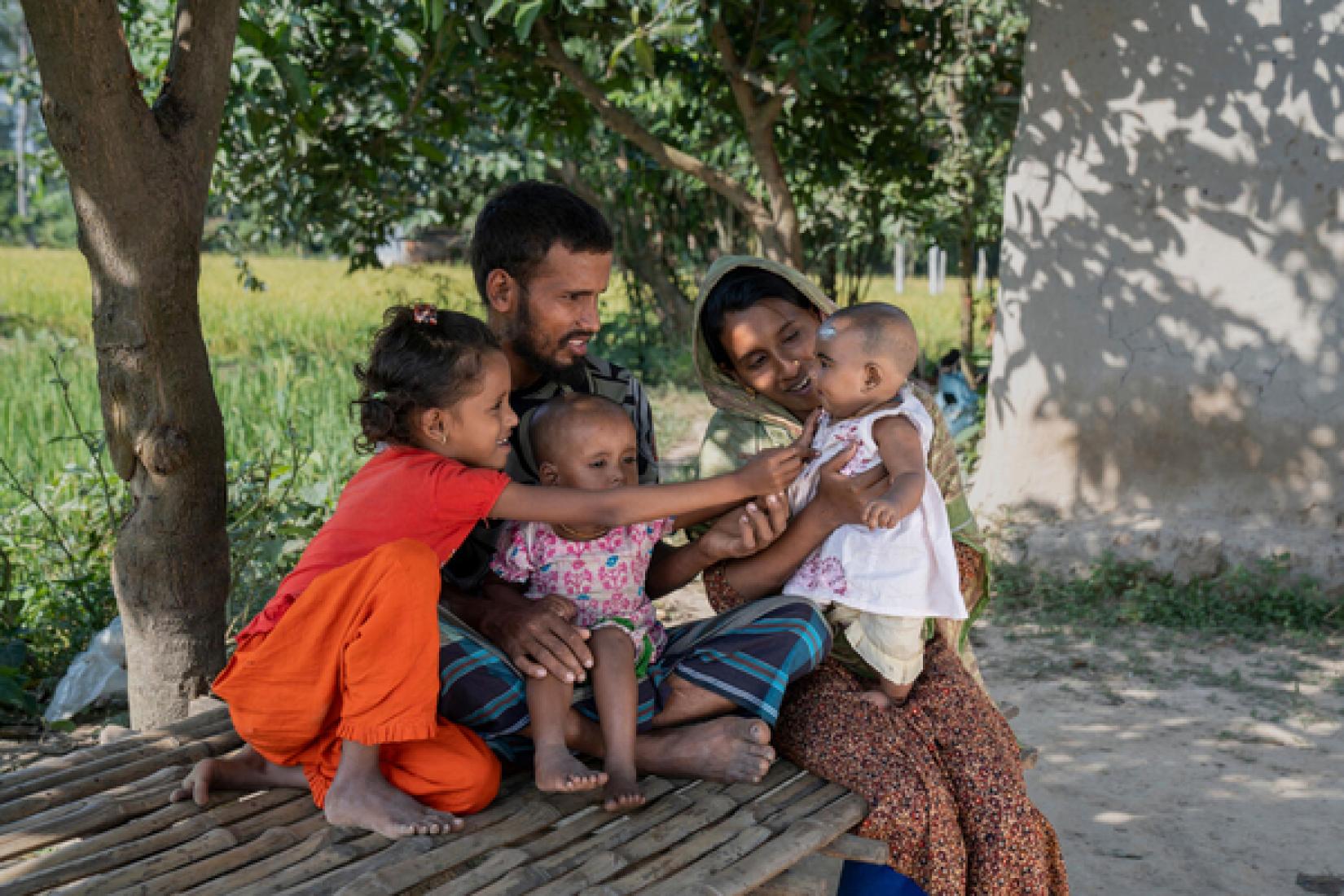A Mother’s Change of Heart

Having gone through two dangerous childbirths at home, Ruma decided to deliver her youngest daughter, Ruhi, at a UNICEF-supported health complex.
“I gave birth to my first two daughters at home. I was in severe pain, losing a lot of blood, and the baby would not come out,” recounted Ruma Khatun. “I was scared. My family was scared.”
At 24, Ruma had already endured two delayed birth deliveries at home. Her first baby, Joti, was born when Ruma was only 16. Five years later, she gave birth to Raysa. Both girls safely arrived in this world, but the birthing experiences remained a nightmare for both Ruma and her husband, Johirul Islam.
“I had to run out of the house to find a home-based birth attendant for Ruma. I was very worried about what might happen,” remembered Johirul.
Luckily, it was different for their third daughter, Ruhi. Three months ago, Ruma safely delivered her baby at the UNICEF-supported Raiganj Upazila Health Complex.[1]
Anxious for her third pregnancy
Ruma lived with Johirul, their daughters, two brothers-in-law, and mother-in-law in the village of Dhamainagar, Rajshahi Division, northwest Bangladesh. Their home was situated alone in an isolated, green paddy field that stretched beyond the horizon, far from the main road.
“From our house, the Upazila Health Complex is very far away, and in the community clinic there was no qualified midwife. If there is rain, the road will become muddy and there will be no transportation. We cannot go anywhere when we are sick,” shared Ruma. “So, I decided to give birth at home.”
Like Ruma, many other pregnant women in her village and community chose to go int labor at home. Not only was it a tradition ingrained in cultural beliefs, but it was also more feasible given their remote locations and seen as less costly.
“Here, most mothers do not want to go to the health complex,” shared midwife Sagarika Rani Mahato, who worked both at the UNICEF-supported Raiganj Upazila Health Complex and the Dhamainagar Community Clinic. "My biggest challenge is to convince mothers to go to the hospital."
“We thought home delivery was less expensive, but it turned out to cost us a lot more money to hire a traditional birth attendant,” shared the couple.
“And I did not trust her. I was scared,” added Ruma.
When she found out she was pregnant again, Ruma was seized with worries. The acute labor pains came back, endless, as if they just happened the day before.
She wanted help.

Community health worker, midwife, and a change of heart
Three months into her pregnancy, Ruma met Sadia Islam, a community health worker[2] who had been going from door to door encouraging mothers in the village to visit the Dhamainagarhat Community Clinic, where the Government of Bangladesh (GOB) and UNICEF recently launched Reaching Every Mother and Newborn (REMN) program. With the goal of being expanded across the country, the program was being piloted in 10 sub-districts of Bangladesh.
“The joint GOB-UNICEF REMN program now aims to bring 80 per cent maternal and newborn health service coverage in all districts and 90 per cent nationally,” said Dr. Jannatul Ferdous, Health Specialist, UNICEF Bangladesh. “Its main purpose is to ensure that in the future, no mother and baby is left behind.”
Wanting the best possible care for herself and her baby, Ruma decided to go to the Dhamainagarhat Community Clinic, where she then met with midwife Sagarika. She had been trained by the joint GOB-UNICEF program to support mothers with not only medical check-ups, but also consultation.
“I provide support to pregnant mothers before, during, and after they give birth,” noted Sagarika.
“She did my blood and urine test at no cost,” said Ruma. “I also received advice on signs of pregnancy risks for me and my baby, on nutritious food and where to go if I started experiencing labor pain.”
With the attentive care and genuine encouragement from Sagarika, Ruma and her husband decided together that their third child would be delivered at the health complex. While it wasn’t customary to give birth outside of home, Ruma knew in her heart that she and her daughter needed to be safe first.

Ruhi, a bundle of joy
Three-month-old Ruhi was bubbly and curious. With cheek against cheek, hands holding Ruhi’s fingers, Ruma softly beamed with pride and happiness.
“I gave birth to her with confidence because there were skilled midwives who delivered my baby. They made me trust that my baby would be healthy, and I would be healthy as well,” commented Ruma.
She had successfully given birth with no complications a few months ago and was still going to the Dhamainagarhat Community Clinic for check-ups. Besides Ruma, since June 2023, the joint GOB-UNICEF program has provided more than 9,500 antenatal visits for pregnant mothers, on track to reach the goal of 15,425 in 2023.
Coming from a poor family herself, Ruma knew her biggest wish was for her children to be born healthy, have a good education and get out of poverty. Now watching her three daughters laughing and playing with one another, Ruma knew, with hope, she was already on her way to achieve that dream.

UNICEF wishes to express sincere gratitude to Global Affairs Canada for their continued support and immense contribution to the health and well-being of mothers and newborns in Bangladesh. The Canadian Initiative for Vaccine Equity “CanGIVE” is contributing though its humanitarian funding in supporting deprived population and increasing their access to health care.
[1] Government-run rural health facilities
[2] She is also known as the “Family Welfare Assistant,” designated to work within communities for maternal and child health and family planning.



